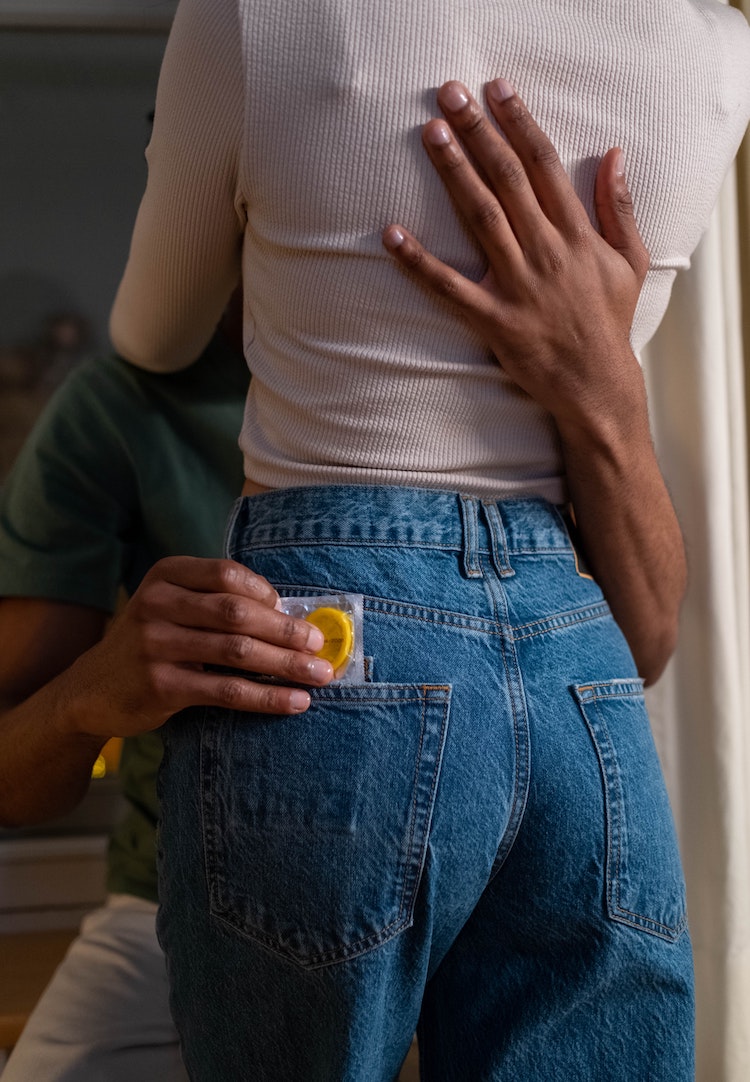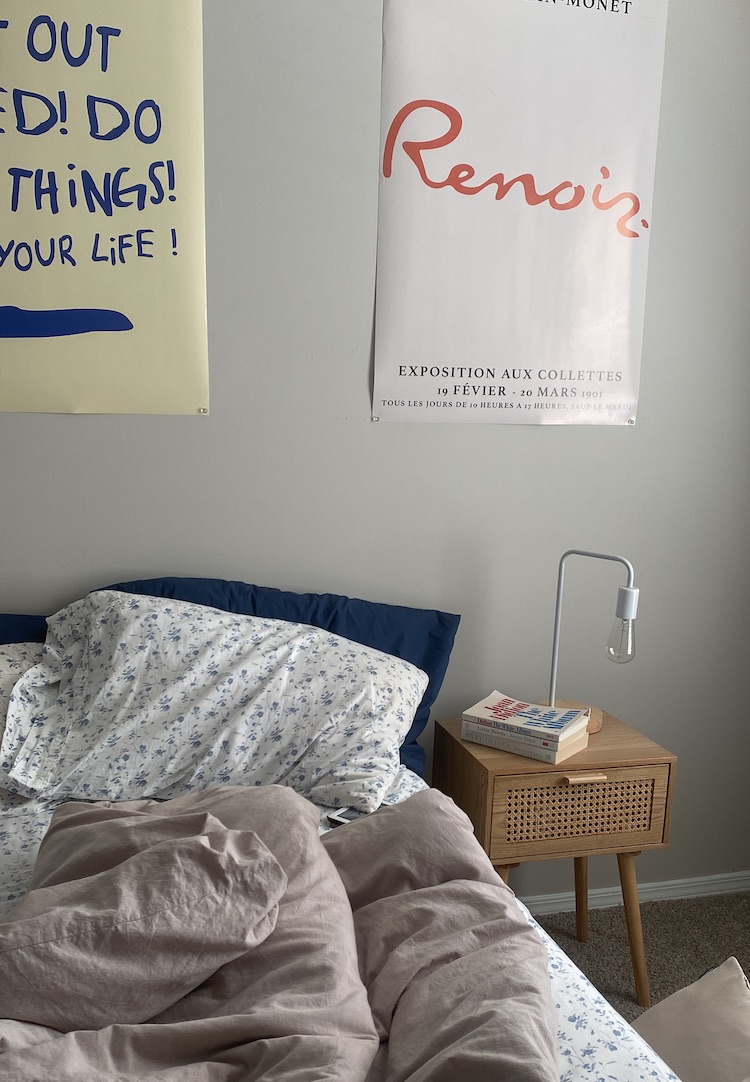How to ask for what you want in bed, according to an expert
WORDS BY HANNAH COLE
Get ready for your best sex ever.
Sometimes, it’s hard enough to know what I want (in life, in love) let alone how to ask for it. Yesterday I ummed and ahhed, struggling to decide whether I felt like a salad or burger. The little things shouldn’t be that hard!
For more sex-related stories, head to our Life section.
When it comes to sex, many of us aren’t comfortable asking for what we want. Maybe it feels awkward or vulnerable, or you simply don’t know what you should be asking for. So, how can you determine what you want and then find your voice to make it happen? I spoke to certified sex coach, Georgia Grace, to get the lowdown.
The struggle of asking for what you want
“This is such a common concern, and often people say, ‘I can’t ask for what I want because I don’t know what I want’,” Georgia tells me. She believes that before we explore communicating in bed, we need to answer these key questions: Who am I as a sexual person? How do I want to be touched, and what feels good for my body? You need to take the time to really consider and know yourself. Tune in.
Once these are established, it’s not necessarily smooth sailing to the best sex ever. Communicating these learnings can be just as difficult, and, as Georgia notes, speaking during sex can be a real challenge. As she puts it, “it’s often a language that we’re not taught”.
“We have this idea that sex should be smooth and you don’t need to tell your partner what you want – if they love you, they should just know your body and know what you want. You should just roll around together and come at the same time, and it’s going to be easy and free from communication. But, very rarely does that happen,” she explains.
According to Georgia, sexual communication is often the key to great sex: it’s “vital for a healthy, fulfilling sex life”. Without it, sexual experiences may be disappointing, because we’re neglecting our true desires. Most importantly, sexual communication is necessary for consent. It’s a way to make sure that everyone is happy to be there and ensure the most pleasurable experience for all.
“Just because you had sex a few times, it doesn’t mean that you know everything about this person’s body, how they want to be touched or what feels good for them,” says Georgia. “The more you talk, the more pleasure you can access.” It’s time we learnt this language.
How can we find our voice?
In the latest episode of her podcast, In Bed, Georgia speaks with Dr Betty Martin, who is “a pioneer in sexual communication skills”. She outlines a range of frameworks that she teaches her clients, allowing people to practice and build the techniques required.
One of these is the three-minute game. Georgia outlines it for me: Take it in turns to ask, how would you like me to touch you for three minutes? And then, how would you like to touch me for three minutes? These simple questions open the conversation. Maybe there are desires you have never before addressed with your partner – now is the time to bring them up unashamedly.
As Dr Betty mentions, even within this framework, there is room for negotiation and discussion, leading to a three-minute practice that all parties are comfortable with. And according to Georgia, “If you ask those questions for the rest of your life, you will always learn something new”. It’s a worthy practice for all.
‘Practice’ and ‘play’ sessions are also useful. A practice session might begin with clothes on, focusing on non-erogenous areas and asking your partner how they would like to be touched (a long cuddle, a kiss, a massage, for example). Within that session, you may be “really directive, verging on bossy and being descriptive knowing that they don’t have to nail this massage the first time,” mentions Georgia. “You may be asking them for things they’ve never even known how to give or know how to touch you in this way.” Those skills can then be used and integrated into a play session.
Games are an easy way to break the ice and actively delve into each other’s wants and needs (of which there are plenty more great ideas in Georgia’s episode). Of course, at times, we also need good old conversation starters to help trigger this back and forth communication. “It’s really useful to have sex conversations outside of a sexual context,” says Georgia. For consent, awareness of boundaries and reducing vulnerability can help you ease into the conversation (it’s much harder when the clothes are off).
Mention something you’ve read (this article, perhaps?) or an episode of the podcast and use it as an entry point. Whether you agree with the content or not, it allows for discussion and exploration of opinions and wants. An important note from Georgia: use affirming language and start with the benefits. This isn’t about making your partner feel bad or criticising your sex life; instead, use it as a chance to strengthen, learn and connect more deeply.
The conversation may go like this: “I really love you and our relationship – I think it’s the best thing ever – and sexual communication/sexual wellness/our sex life is really important to me. I’m curious about finding ways that we can work on it/explore x/do this thing together. When would be a good time to talk about that?”. And always end on a positive note, for example, “…because this is exciting and sexy and fun for me to do with you”.
Continue the conversation after sex as well, honestly asking your partner “How was that for you? What was the most pleasurable thing? What would you want to do next time? What wouldn’t you want to do next time?”.
“I always really want to challenge the thought or the idea that if you’re communicating, it takes you out of the moment, and it kills the mood. I think it does the exact opposite – it ensures that everyone is really excited about being there and having the best time possible,” Georgia tells me. So go internal, get talking and prepare to unlock the door to your best sex yet.
You can listen to Georgia Grace’s podcast, In Bed, here.










